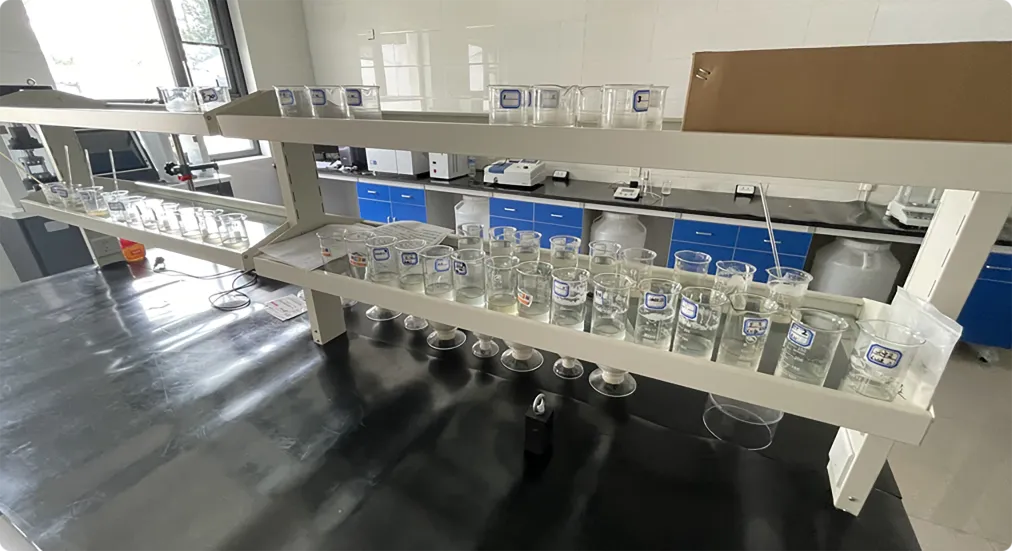
Dic . 29, 2024 15:55 Back to list
Hydroxyethyl Cellulose CAS Number Properties and Applications in Various Industries
Hydroxyethyl Cellulose An Overview
Hydroxyethyl cellulose (HEC) is a non-ionic, water-soluble cellulose derivative that has gained significant attention across various industries due to its unique properties and applications. Its Chemical Abstracts Service (CAS) number is 9004-62-0, and it is widely used as a thickening agent, emulsifier, and stabilizer in diverse formulations. This article delves into the structure, properties, applications, and benefits of hydroxyethyl cellulose.
Structure and Properties
Hydroxyethyl cellulose is synthesized from cellulose, a natural polymer found in the cell walls of plants. The process involves the etherification of cellulose with ethylene oxide, resulting in the introduction of hydroxyethyl groups along the cellulose backbone. This modification enhances the solubility of cellulose in water, making HEC an excellent thickener and stabilizer in various aqueous systems.
One of the remarkable properties of HEC is its hydrophilic nature, which allows it to dissolve easily in water to form clear, viscous solutions. Furthermore, HEC is highly resistant to salt and has excellent thermal stability, making it suitable for applications requiring temperature fluctuations. Additionally, HEC displays pseudoplastic behavior, where its viscosity decreases under shear stress, making it an ideal choice for products intended for easy application.
Applications
Hydroxyethyl cellulose is extensively used in a variety of industries, including cosmetics, pharmaceuticals, food, and construction. In the cosmetic industry, HEC acts as a thickening agent in lotions, creams, gels, and shampoos, enhancing both the texture and stability of these products. Its ability to form films also makes it useful in formulating hair styling products, where it provides hold and control.
In pharmaceuticals, HEC is utilized in the formulation of topical gels, ointments, and drug delivery systems. Its non-irritating nature and compatibility with various active ingredients make it a preferred choice for pharmaceutical formulations. HEC also serves as a binder in tablet formulations, improving the cohesiveness and overall stability of the tablets.
hydroxyethyl cellulose cas no

The food industry benefits from hydroxyethyl cellulose as an emulsifier and stabilizer in sauces, dressings, and dairy products. Its ability to enhance texture and prevent separation of ingredients contributes to the quality and appeal of food products. HEC is often regarded as a safe additive, with its use sanctioned in various food formulations across different countries.
Furthermore, HEC finds important applications in the construction industry. It is used as a thickener in cement-based products and as an additive in tile adhesives and grouts. Its water retention properties ensure adequate workability and prevent cracking, enhancing the durability of construction materials.
Benefits
The benefits of using hydroxyethyl cellulose are manifold. Its versatility allows for a wide range of applications, making it an invaluable additive in many formulations. The non-ionic nature of HEC ensures compatibility with a variety of ingredients, reducing the risk of adverse reactions. Additionally, its biodegradability makes it an environmentally friendly option, aligning with the growing demand for sustainable and eco-conscious products.
Moreover, the use of hydroxyethyl cellulose can improve the sensory attributes of products, providing a desirable texture and feel. In topical applications, it can enhance the spreadability and adhesion, improving the overall user experience.
Conclusion
Hydroxyethyl cellulose is a remarkable polymer that has established itself as a vital ingredient in numerous industries. Its unique properties, such as water solubility, compatibility with various formulations, and biodegradability, make it an attractive option for manufacturers and consumers alike. As the demand for innovative and effective products continues to grow, the versatility of hydroxyethyl cellulose ensures its place in the future of formulation chemistry. Whether used in cosmetics, pharmaceuticals, food, or construction, HEC remains a foundational component that contributes to the efficacy and appeal of a wide range of products.
-
Versatile Hpmc Uses in Different Industries
NewsJun.19,2025
-
Redispersible Powder's Role in Enhancing Durability of Construction Products
NewsJun.19,2025
-
Hydroxyethyl Cellulose Applications Driving Green Industrial Processes
NewsJun.19,2025
-
Exploring Different Redispersible Polymer Powder
NewsJun.19,2025
-
Choosing the Right Mortar Bonding Agent
NewsJun.19,2025
-
Applications and Significance of China Hpmc in Modern Industries
NewsJun.19,2025







